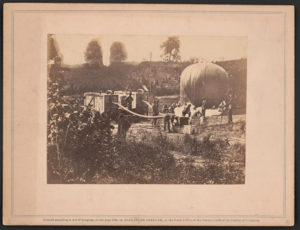by Michael Geselowitz
Published: September 8, 2023
Drones have been in the news a lot over the summer. With their increasing prominence in various global conflicts, the U.S. Department of Defense just announced that it wants to buy thousands of small, inexpensive autonomous drones. At the same time, drones were critical in surveilling the horrible fire on the Hawaiian island of Maui, in conducting rescues, and, tragically, in subsequent recovery efforts. Now, another natural disaster in the United States – Hurricane Idalia in Florida – used drones to give people much better warnings than in the past, and are again being used in search and rescue operations.
As you greet your students for the new school year, you can engage them in real-world issues that will raise their understanding of the role of technology in society while increasing their reading, critical thinking, and research skills.
The IEEE REACH UAV (unmanned aerial vehicle or “drones”) Inquiry Unit explains how drones had their origins in the military but have applications across society, and encourages students to use knowledge of the past and present to speculate on the future. Like all REACH units, the UAV (drones) unit includes an inquiry designed lesson plan, teacher background information, primary and secondary sources, engaging student videos, and a hands-on activity.

In fact, the Drones Unit hands-on activity is particularly valuable for tactile learners, allowing the students to explore in the classroom on a small scale how drones are used in rescue and recovery efforts such as those on Maui and in Florida.
About IEEE REACH Lesson Plans:
REACH provides full lesson plans that are researched and vetted by Ph.D. Historians. All the program resources meet both the United States and International education standards, including the National Council for the Social Studies (NCSS) C3 (College, Career, and Civics) standards and the Social Studies Common Core standards, in addition to the Next Generation Science Standards. They also meet the International Technology and Engineering Educators Associations’ (ITEEA) Standards for Technology and Engineering Literacy or STEL.
